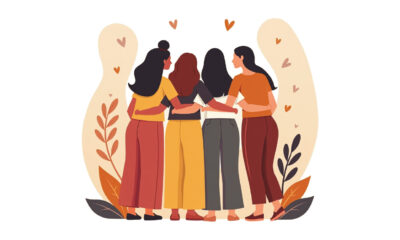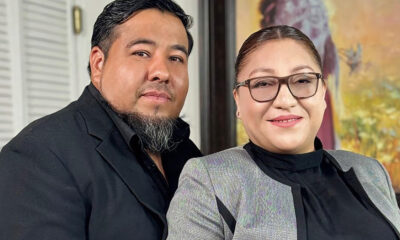Especiales
¿En la cuarentena se está haciendo Home School?
Publicado
5 años antesel

Eunice Velázquez Zamora, fundadora de la comunidad Home School Juárez, nos cuenta como se ha confundido el término “Homeschool” con la nueva normalidad ahora que los niños deben tener clases en casa y no en las aulas, permanecen el 100 por ciento del tiempo con sus padres y a los maestros sólo los ven vía internet, televisión, radio o WhatsApp. Pero, ¿de verdad es esto la escuela en casa?
“Tenemos que distinguir lo que está sucediendo por la pandemia, no es homeschool, la gente sólo está siguiendo los lineamientos de la Secretaría de Educación Pública (SEP) y dependen de ella. Lo que sí es homeschool es educar en el hogar por una convicción personal y familiar, en la que nosotros nos vamos a encargar de todas las áreas de vida de nuestros hijos: valores, socialización, idiomas. Es la responsabilidad de nosotros como padres para trabajar con ellos, esto es educar en casa y no sólo seguir un sistema temporal mientras que se abren de nuevo las escuelas” asegura Velázquez.
Nace la comunidad de apoyo
La comunidad de Home School Juárez se fundó el 9 de marzo de 2016, cuando Eunice tuvo la necesidad de desescolarizar a sus hijos para atender los problemas de dislexia en uno de ellos. Al estar de lleno con uno decidió hacer lo mismo con los otros dos y que todos siguieran el modelo.
Pero al ser una de las pioneras, no había con quien interactuar ni intercambiar experiencias, metodologías y consejos, por eso se lanzó la invitación a hacer una comunidad de apoyo a todos los que tuvieran la convicción de la enseñanza en casa. La primera reunión se realizó con 6 familias de la frontera, hoy son 63 las que se han sumado.
La comunidad se ha organizado para realizar actividades grupales ya sea por semana, quincena o mes. En estas reuniones los niños salen a visitar lugares importantes y de interés que les permiten desarrollar su conocimiento: la lechería, plantas tratadoras de aguas, teatros, entre otros, todo lo que les ayude a incentivar sus conocimientos.
Además, los padres que tienen alguna dificultad con alguna materia o requieren mayor apoyo para las clases de alguno de los grados del menor, son orientados por los otros padres que saben más de dicha asignatura, por lo que el niño no queda con ese hueco educativo.
“La mayoría de los padres tiene una carrera y eso ayuda mucho, ya que cada uno apoya en el conocimiento del resto según su especialidad, hay padres que son ingenieros, pero necesitan ayuda en inglés o viceversa”, señala Velázquez.
La preparación y convicción de los padres
Para poder entrar a la comunidad debe haber una fiel convicción por parte de los padres de que la educación en casa es lo mejor. Para ello cada 6 meses la comunidad realiza juntas donde se les informa todo lo referente al modelo que se sigue, se despejan dudas y se les orienta a los padres en determinar si de verdad están convencidos de llevar la educación de sus hijos o no.
En estas pláticas se especifica estrictamente cómo es que los menores serán evaluados, todos deben presentarse al Instituto Chihuahuense de Educación para los Adultos (ICHEA) que es el único organismo avalado por la SEP para poder otorgar los certificados requeridos para su vida académica y laboral.
En cuanto al rendimiento de los estudiantes, ha sido catalogado como bueno debido a los resultados. “Ahorita tenemos estudiantes desde kínder hasta preparatoria y algunos que ya han ingresado a la Universidad Autónoma de Ciudad Juárez u otra, no tienen ningún problema en integrarse, mucho menos en sesgos de aprendizaje, todos llegan a la universidad sin problemas y con buen rendimiento”, enfatizó Eunice.
Afectaciones de pandemia
Si bien algunos creen que la pandemia del COVID-19 no ha afectado a este sector educativo, Eunice confirma que sí, “todas nuestras actividades se han suspendido y los niños son los que más se extrañan, porque ellos conviven mucho y son muy sociables”.
Aunado a esto las modificaciones de los padres que no llevaban este estilo de vida han tenido que recurrir a padres de la comunidad para recibir consejos de cómo poder apoyar a sus hijos en esta temporada que las escuelas están cerradas y todo lo deben hacer en casa.
“Los estamos orientando, no podemos cerrarnos a apoyarlos, porque ellos no están familiarizados con esta manera de educar y si bien no es permanente como los que somos de la comunidad, ellos necesitan el apoyo en este momento”, finalizó la presidenta.
Contacto
Para más detalles de este método de enseñanza puede comunicarse al número 656-356-0708, también puede buscarlos en Facebook como Homeschool Juárez.
Are you doing Home School during the quarantine?
Eunice Velázquez Zamora, founder of the Home School Juárez community, tells us how the term “Homeschool” has been confused with the new normal now that children must have classes at home instead in classrooms, they remain with 100 percent of the time with their parents and only see their teachers via the internet, television, radio or WhatsApp. But is this really homeschool?
“We have to distinguish what is happening due to the pandemic. It is not homeschool, people are only following the guidelines of the Ministry of Public Education (SEP) and they depend on it. What is homeschool is home schooling out of a personal and family conviction, in which we are going to take care of all areas of our children’s lives: values, socialization, languages. It is the responsibility of us as parents to work with them, this is to educate at home and not just follow a temporary system while the schools are reopened”, says Velázquez.
A support community is born
The Home School Juárez community was founded on March 9, 2016, when Eunice had the need to deschool her children to attend to the dyslexia problems in one of them. Being fully with one, she decided to do the same with the other two and have everyone follow the pattern.
But being one of the pioneers, there was no one with whom to interact or exchange experiences, methodologies and advice, that’s why the invitation was launched to create a community of support for all those who have the conviction of teaching at home. The first meeting was held with 6 families from the border, today there are 63 who have joined.
The community has organized itself to carry out group activities either per week, fortnight or month. In these meetings the children go out to visit important and interesting places that allow them to develop their knowledge: the dairy, water treatment plants, theaters, among others, everything that helps them to encourage their knowledge.
In addition, parents who have some difficulty with a subject or require more support for classes in any of the minor’s grades are guided by other parents who know more about the subject, so the child is not left with that educational gap.
“Most parents have a career and that helps a lot, since each supports the knowledge of the rest according to their specialty, there are parents who are engineers, but they need help in English or vice versa”, says Velázquez.
Parents’ preparation and conviction
In order to enter the community there must be a faithful conviction from the parents that homeschooling is the best. For this, every 6 months the community holds meetings where they are informed about everything related to the model that is being followed, doubts are cleared and parents are guided in determining whether they are really convinced of taking the education of their children or not.
In these talks it’s strictly specified how the minors will be evaluated, all must present themselves to the Chihuahuense Institute of Adult Education (ICHEA) which is the only office endorsed by the SEP to be able to grant the required certificates for their academic and work life.
Regarding the performance of the students, it has been classified as good due to the results. “Right now we have students from kindergarten to high school and some who have already entered the Autonomous University of Ciudad Juárez or another, have no problem integrating, much less in learning biases, they all arrive at university without problems and with good performance”, Eunice emphasized.
Pandemic effects
Although some believe that the COVID-19 pandemic has not affected this educational sector, Eunice confirms that it has, “all our activities have been suspended and the children are the ones who miss each other the most, because they are very sociable” .
In addition to this, the modifications of parents who did not lead this lifestyle have had to turn to parents in the community for advice on how to support their children this season that schools are closed and everything must be done at home.
“We are guiding them, we cannot close ourselves to supporting them, because they are not familiar with this way of educating and although it is not permanent like those of us in the community, they need the support at this time”, concluded the president.
Contact
For more details of this teaching method you can call 656-356-0708, and you can also look for them on Facebook as Homeschool Juárez.
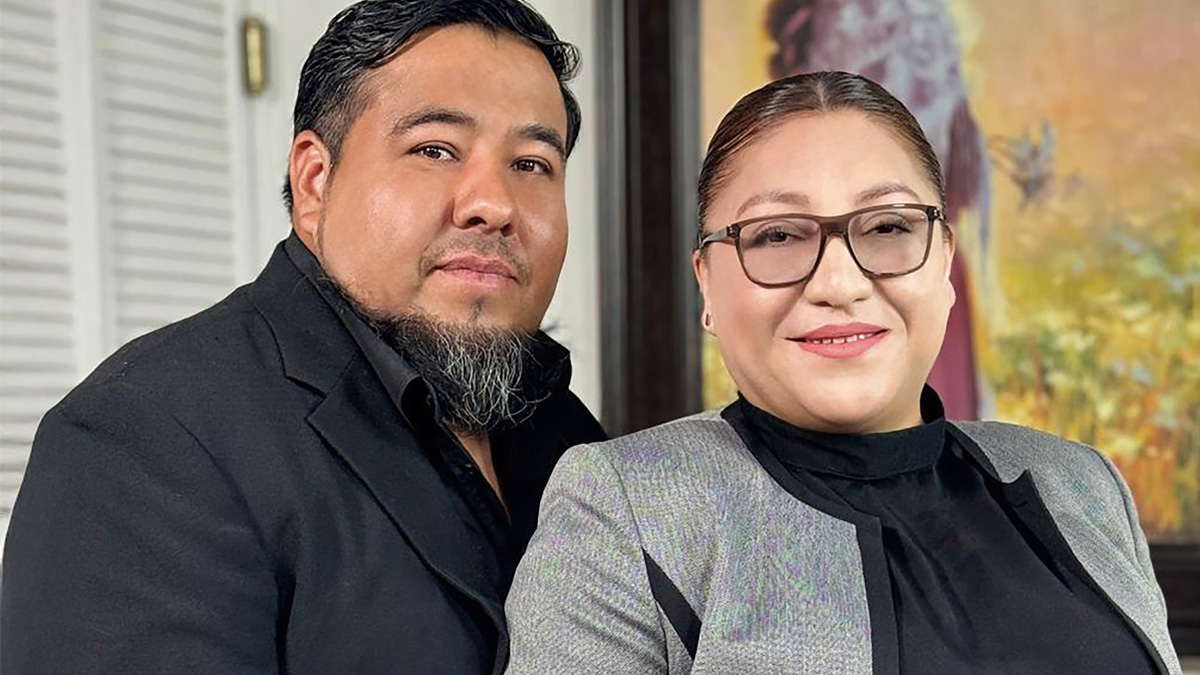
Un modelo que une, asistencia social y transformación espiritual en la frontera.
El Ministerio Esperanza de Vida., La Iglesia Vida Eterna y Casa Hogar Mi Esperanza se han convertido en un referente de servicio y fe. Fundada hace 20 años como iglesia y consolidada desde hace 16 años como asociación civil, esta obra está dirigida por los pastores Viridiana Romero Mártires y Misha Valtierra, quienes han fortalecido una misión que hoy atiende a comunidades rurales de Cd. Juarez, desde el kilómetro 30 de la carretera a Casas Grandes.
Su labor social se centra en los más vulnerables. Casa Hogar Mi Esperanza brinda cuidado permanente a 28 adultos mayores, la mayoría sin familia ni documentos oficiales, canalizados por el DIF, Seguridad Pública o el Hospital General. La demanda es alta, con un promedio de cinco solicitudes diarias de ingreso.
Paralelamente, los Centros de Rehabilitación CHARIS, de carácter mixto, atienden tanto a hombres como mujeres, aunque la mayoría de la población atendida son mujeres. El centro femenil tiene capacidad para 40 internas y logra que 35 de cada 40 alcancen una transformación real, con seguimiento espiritual y toxicológico. El área varonil, en desarrollo, actualmente trabaja con casos relacionados con violencia doméstica, abuso y ausencia paterna.
El método de transformación es claro: un proceso mínimo de un año. Los programas cortos de tres meses resultan insuficientes; se requieren al menos seis meses de preparación y un año completo para consolidar cambios duraderos. El 70% de las recaídas, ocurre por regresar al mismo entorno social. La credibilidad se construye con el testimonio de vida de quienes han pasado por el proceso, Por ello, sus programas incluyen acompañamiento familiar, con el fin de que la reintegración de los egresados ocurra en un entorno sano y de apoyo.
El reto financiero es grande: alimentar y sostener a 90-100 personas requiere recursos constantes. Aunque reciben apoyos en especie y algunas cuotas familiares, buscan consolidar el estatus de donataria autorizada para asegurar sostenibilidad.
Con visión integral y fe inquebrantable, El Ministerio Esperanza de Vida., La Iglesia Vida Eterna y Casa Hogar Mi Esperanza siguen escribiendo historias de transformación en la frontera, recordando que la verdadera esperanza no solo se predica, sino que se vive y se comparte.
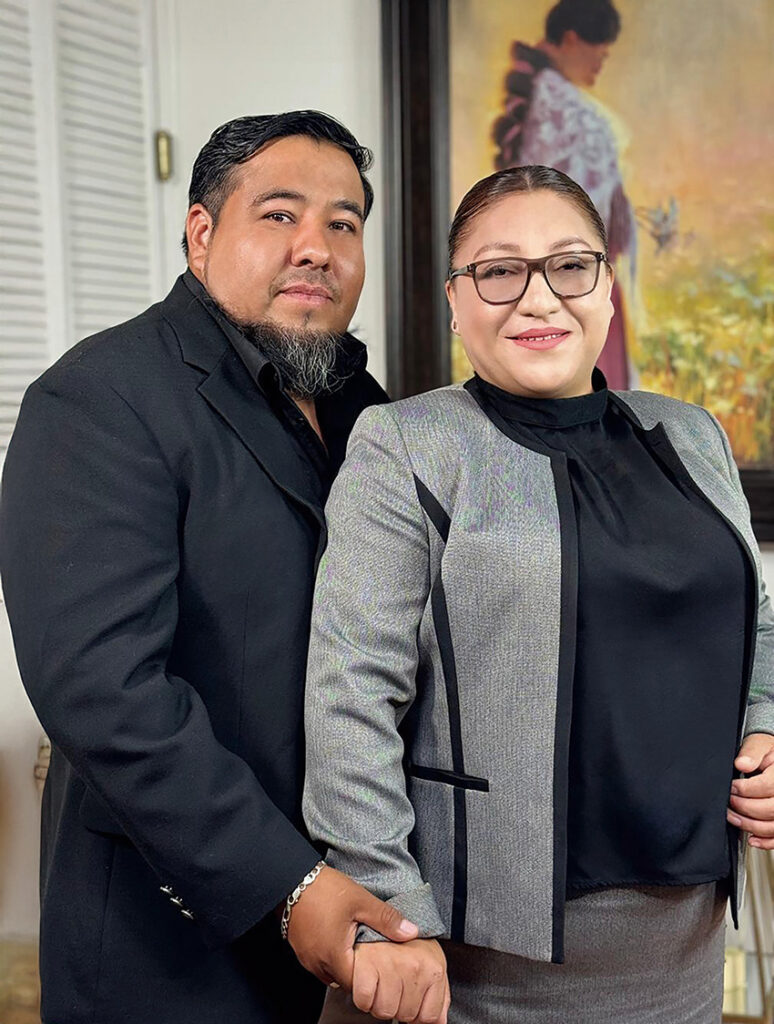
Restoring Lives with Hope
A model that unites social assistance and spiritual transformation on the border.
The Esperanza de Vida Ministry, Vida Eterna Church, andMi Esperanza Home have become a beacon of service and faith. Founded 20 years ago as a church and consolidated 16 years ago as a nonprofit association, this work is led by Pastors Viridiana Romero Martires and Misha Valtierra, who have strengthened a mission that today serves rural communities in Ciudad Juarez, from kilometer 30 on the highway to Casas Grandes.
Their social work focuses on the most vulnerable. Casa Hogar Mi Esperanza provides permanent care for 28 elderly adults, most without family or official documents, referred by the DIF (Family Development Agency), Public Safety, or the General Hospital. The demand is high, with an average of five admission requests per day.
At the same time, the mixed-gender CHARIS Rehabilitation Centers serve both men and women, although most of the population served are women. The women’s center has the capacity for 40 residents and achieves real transformation for 35 out of every 40, with both spiritual and toxicological follow-up. The men’s area, still in development, currently works with cases related to domestic violence, abuse, and fatherlessness.
The method of transformation is clear: a minimum process of one year. Short programs of three months prove insufficient; at least six months of preparation and a full year are required to achieve lasting change. About 70% of relapses occur because individuals return to the same social environment. Credibility is built through the life testimony of those who have gone through the process. For this reason, their programs include family involvement, ensuring that reintegration happens in a healthy and supportive environment.
The financial challenge is significant: feeding and sustaining 90–100 people require constant resources. Although they receive in-kind donations and some family contributions, they are working to obtain authorized donor status to ensure sustainability.
With a comprehensive vision and unshakable faith, Esperanza de Vida Ministry, Vida Eterna Church, and Mi Esperanza Home continue writing stories of transformation on the border, reminding us that true hope is not only preached but lived and shared.
Especiales
Dra. Abril Silva Rodríguez: “Hoy es un buen día para escuchar”
Publicado
2 semanas antesel
16/10/2025Por
Staff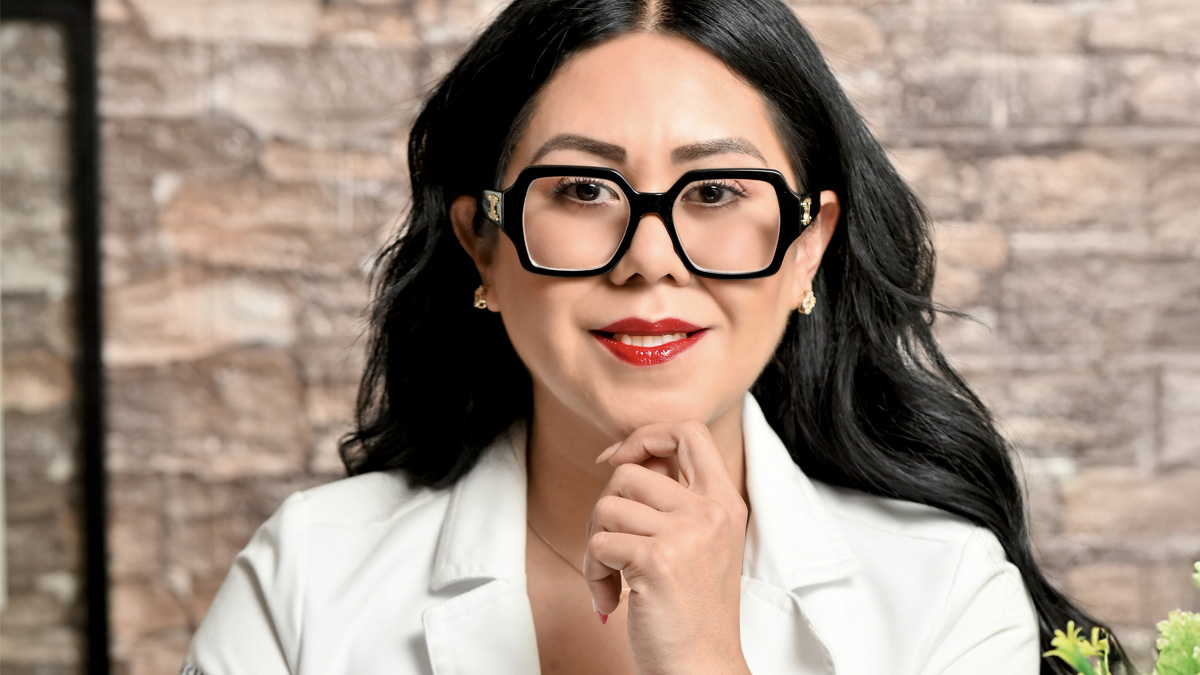
La Dra. Abril Silva impulsa la Audiología y Otoneurología en México con vocación y compromiso social, transformando vidas a través de la escucha.
El 23 de octubre es para la Dra. Abril Silva Rodríguez una fecha de homenaje. Un día para reconocer a las médicas visionarias que han abierto camino: maestras, colegas, compañeras y amigas que han demostrado que la medicina es, ante todo, compromiso y gratitud.
Su formación comenzó en la Universidad Anáhuac México Norte, donde aprendió a ejercer con humanismo, responsabilidad social, excelencia profesional y ética. El camino no fue sencillo: trabajó en el sector público y privado, en urgencias y en cada espacio donde hubiera oportunidad. Sin embargo, siempre estuvo acompañada de personas entrañables que le brindaron apoyo invaluable. Gracias a esa experiencia y a esa red de confianza, logró construir su propio proyecto profesional con estándares de calidad que hoy son referencia en la frontera.
Con el nacimiento de AUDIOCARE NORTE MX®, se asumió un reto: dar visibilidad a una especialidad jóven en México. La Audiología y Otoneurología cuenta apenas con 48 años de existencia en el país y alrededor de 700 médicos, de los cuales solo cuatro ejercen en Ciudad Juárez. Desde ahí, su misión es clara: atender con excelencia problemas auditivos y otoneurológicos como mareo, vértigo, inestabilidad y tinnitus; educar a los pacientes sobre la existencia de tratamientos efectivos; y acompañar a quienes llegan con ansiedad, depresión y familias desgastadas después de buscar ayuda en muchos lugares. Para la doctora, devolver calidad de vida es un compromiso inquebrantable.
Su vocación también se refleja en el ámbito social. Tras años de participar en campañas de donación y apoyo a comunidades vulnerables, hoy impulsa su propio proyecto: “¡Hoy es un buen día para escuchar!”®, una plataforma dedicada a retribuir a la frontera todas las oportunidades recibidas, brindando salud y esperanza a quienes más lo necesitan. La Dra. Abril Silva se ha consolidado como un referente en su especialidad en México y como una voz que recuerda que escuchar no es solo un acto físico, sino una forma de recuperar calidad de vida.
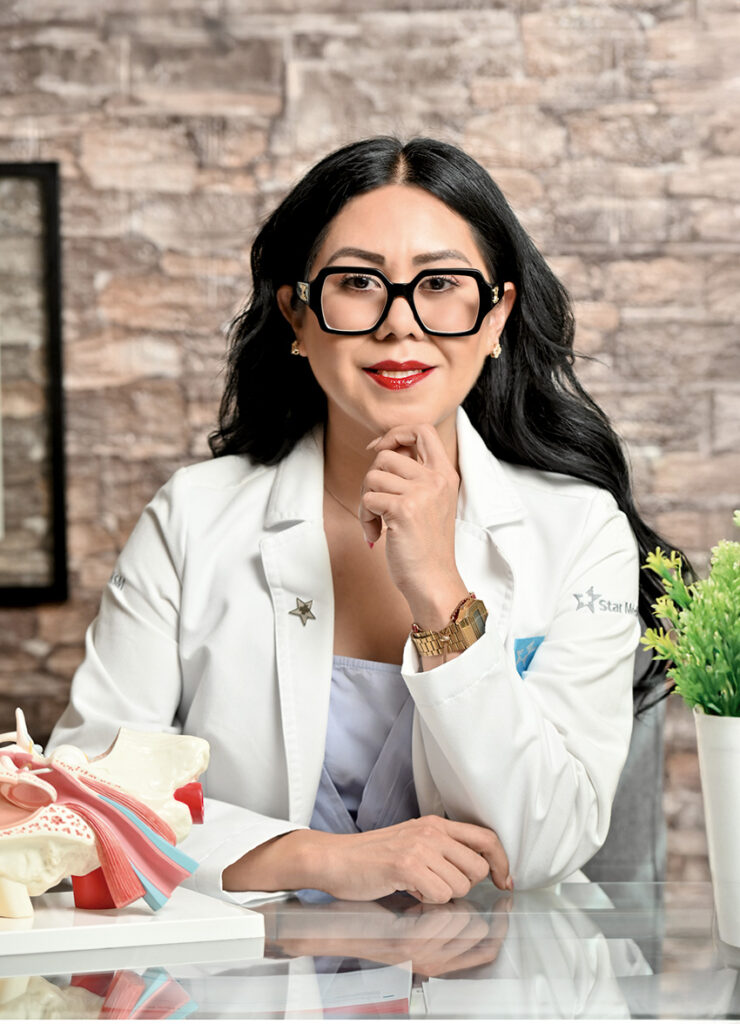
Dr. Abril Silva Rodriguez: “Today Is a Good Day to Listen”
Dr. Abril Silva advances Audiology and Otoneurology in Mexico with vocation and social commitment, transforming lives through listening.
October 23rd is, for Dr. Abril Silva Rodriguez, a day of tribute. A day to honor visionary women doctors who have paved the way: teachers, colleagues, companions, and friends who have shown that medicine is, above all, commitment and gratitude.
Her training began at Universidad Anahuac Mexico Norte, where she learned to practice with humanism, social responsibility, professional excellence, and ethics. The path was not easy: she worked in both the public and private sectors, in emergency rooms, and in every space where an opportunity presented itself. Yet she was always surrounded by dear people who offered invaluable support. Thanks to that experience and network of trust, she was able to build her own professional project with quality standards that today are a reference on the border.
With the creation of AUDIOCARE NORTE MX®, a challenge was set: to bring visibility to a young specialty in Mexico. Audiology and Otoneurology has existed for only 48 years in the country and counts around 700 physicians, of whom only four practices in Ciudad Juarez. From there, her mission is clear: to provide excellent care for hearing and otoneurological conditions such as dizziness, vertigo, imbalance, and tinnitus; to educate patients about the existence of effective treatments; and to accompany those who arrive with anxiety, depression, and exhausted families after searching for help in many places. For Dr. Silva, restoring quality of life is an unbreakable commitment.
Her vocation also extends to the social sphere. After years of participating in donation campaigns and supporting vulnerable communities, she now leads her own project: “Today Is a Good Day to Listen!” ®, a platform dedicated to giving back to the border all the opportunities she has received, providing health and hope to those who need it most.
Dr. Abril Silva has established herself as a benchmark in her specialty in Mexico and as a voice reminding us that listening is not only a physical act, but a way of restoring quality of life.
Especiales
¡Ya Quisieras Cáncer! La Carrera que Inspira Esperanza
Publicado
2 semanas antesel
16/10/2025Por
Staff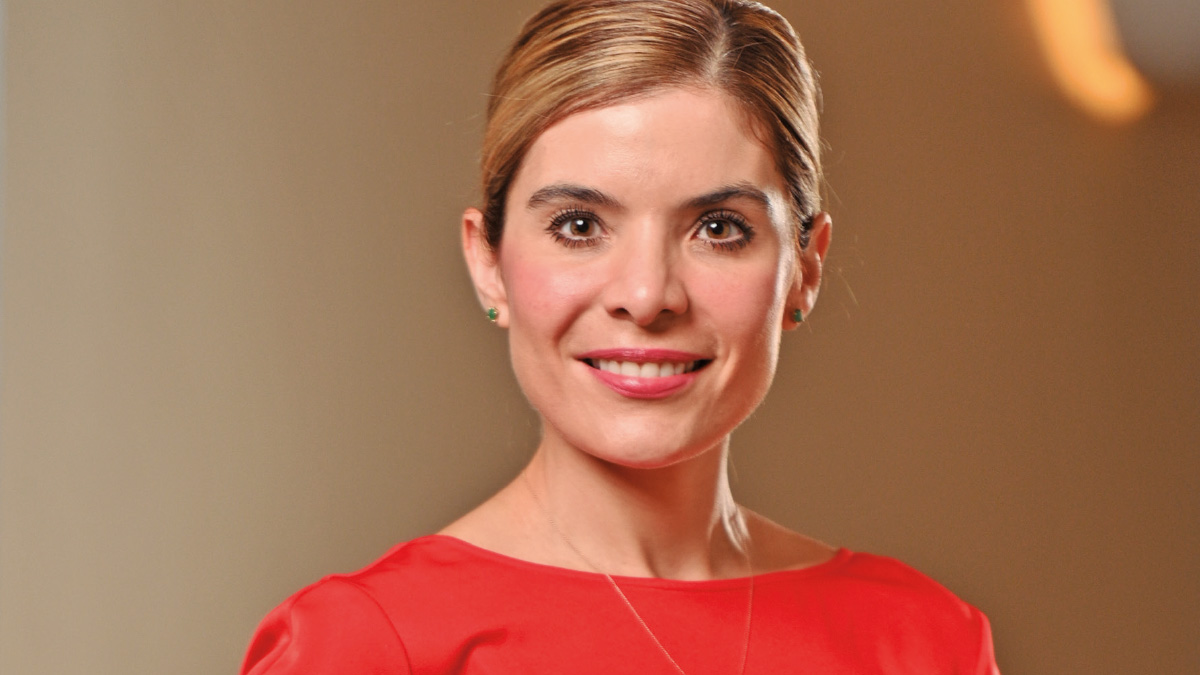
Michelle Betancourt, Directora de Imagen Diagnóstica y Presidenta de la Fundación Sé Feliz
Una sola meta: salvar vidas. “Prevenir es amarse; hacerse un examen es regalarse vida.”
En Ciudad Juárez, octubre no solo pinta las calles de rosa, sino que también las llena de esperanza. La carrera “Ya Quisieras Cáncer”, que se celebra desde hace nueve años, se ha convertido en un símbolo de unión y fortaleza para una comunidad que corre con el propósito de crear conciencia sobre la importancia de la prevención y la detección temprana del cáncer.
En su novena edición, celebrada en el Parque El Chamizal, la carrera superó todas las expectativas: más de 5,000 corredores, 1,000 espectadores y 100 voluntarios se reunieron para apoyar la causa y reafirmar que, cuando la comunidad se une, los milagros suceden. Detrás de este gran movimiento está Michelle Betancourt, una mujer visionaria que ha dedicado su vida a transformar el dolor en esperanza.
El propósito con el que nació la carrera —y que continúa a través de la Fundación Sé Feliz— es ayudar a la ciudadanía, canalizando los recursos recaudados hacia jornadas médicas gratuitas. Estas jornadas ofrecen estudios de prevención, como Papanicolaou, detección de cáncer de mama, cáncer de próstata y del Virus del Papiloma Humano (VPH), beneficiando a mujeres y familias en situación vulnerable.
Este año, la fundación amplió su impacto en el estado, llegando a ciudades como Delicias, Nuevo Casas Grandes, Cuauhtémoc y Parral, destacando entre sus logros la realización de la primera jornada de vacunación abierta contra el VPH en Nuevo Casas Grandes.
Más de 75 empresas, locales y nacionales, se han sumado a este esfuerzo, demostrando que la responsabilidad social también corre con fuerza. Gracias a sus aportaciones, el 100% de las inscripciones se convierte en ayuda directa para quienes más lo necesitan.
La fundación prepara nuevos proyectos, como el Pink Runway, una pasarela de moda rosa en la icónica Casa de Juan Gabriel, donde el arte y la solidaridad se encuentran para seguir promoviendo la salud femenina.
Michelle Betancourt comparte con Visionarias y sus lectoras que “Prevenir es amarse; hacerse un examen es regalarse vida”, con la convicción de que la educación y la detección temprana son los pasos más firmes hacia un futuro más saludable.
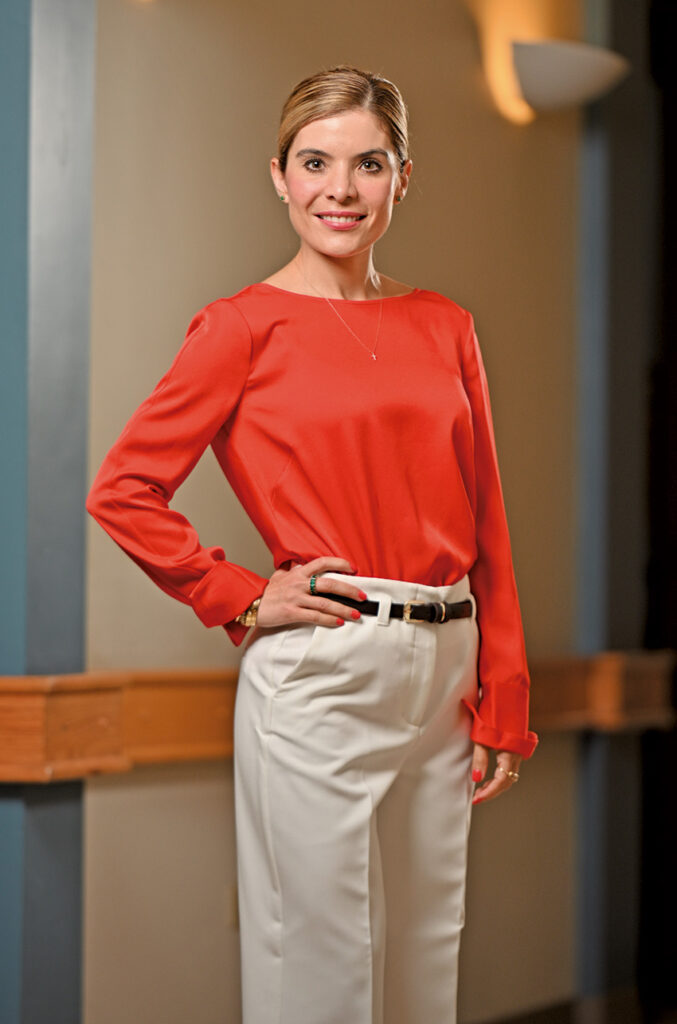
You Wish, Cancer! The Race that Inspires Hope
Michelle Betancourt, Director of Diagnostic Imaging and President of the Se Feliz Foundation
One single goal: saving lives. “Prevention is self-love; getting a check-up is giving yourself the gift of life.”
In Ciudad Juarez, October not only paints the streets pink but also fills them with hope. The race “You Wish, Cancer”, held for the past nine years, has become a symbol of unity and strength for a community that runs with the purpose of raising awareness about the importance of prevention and early cancer detection.
In its ninth edition, held at Parque El Chamizal, the race exceeded all expectations: more than 5,000 runners, 1,000 spectators, and 100 volunteers gathered to support the cause and reaffirm that when a community comes together, miracles happen. Behind this powerful movement stands Michelle Betancourt, a visionary woman who has dedicated her life to transforming pain into hope.
The purpose with which the race was born — and which continues through the Se Feliz Foundation — is to help the community by channeling the funds raised into free medical campaigns. These campaigns offer preventive exams such as Pap smears, breast cancer and prostate cancer screenings, and HPV (Human Papillomavirus) detection, benefiting women and families in vulnerable situations.
This year, the foundation expanded its reach throughout the state, visiting cities such as Delicias, Nuevo Casas Grandes, Cuauhtemoc, and Parral. Among its achievements stands out the first open HPV vaccination campaign in Nuevo Casas Grandes.
More than 75 companies, both local and national, have joined this effort, proving that social responsibility also runs strong. Thanks to their contributions, 100% of race registrations turn into direct assistance for those who need it most.
The foundation is already preparing new projects, such as Pink Runway, a pink-themed fashion show at the iconic Casa de Juan Gabriel, where art and solidarity come together to continue promoting women’s health.
Michelle Betancourt shares with Visionarias and its readers that “Prevention is self-love; getting a check-up is giving yourself the gift of life,” firmly believing that education and early detection are the surest steps toward a healthier future.










